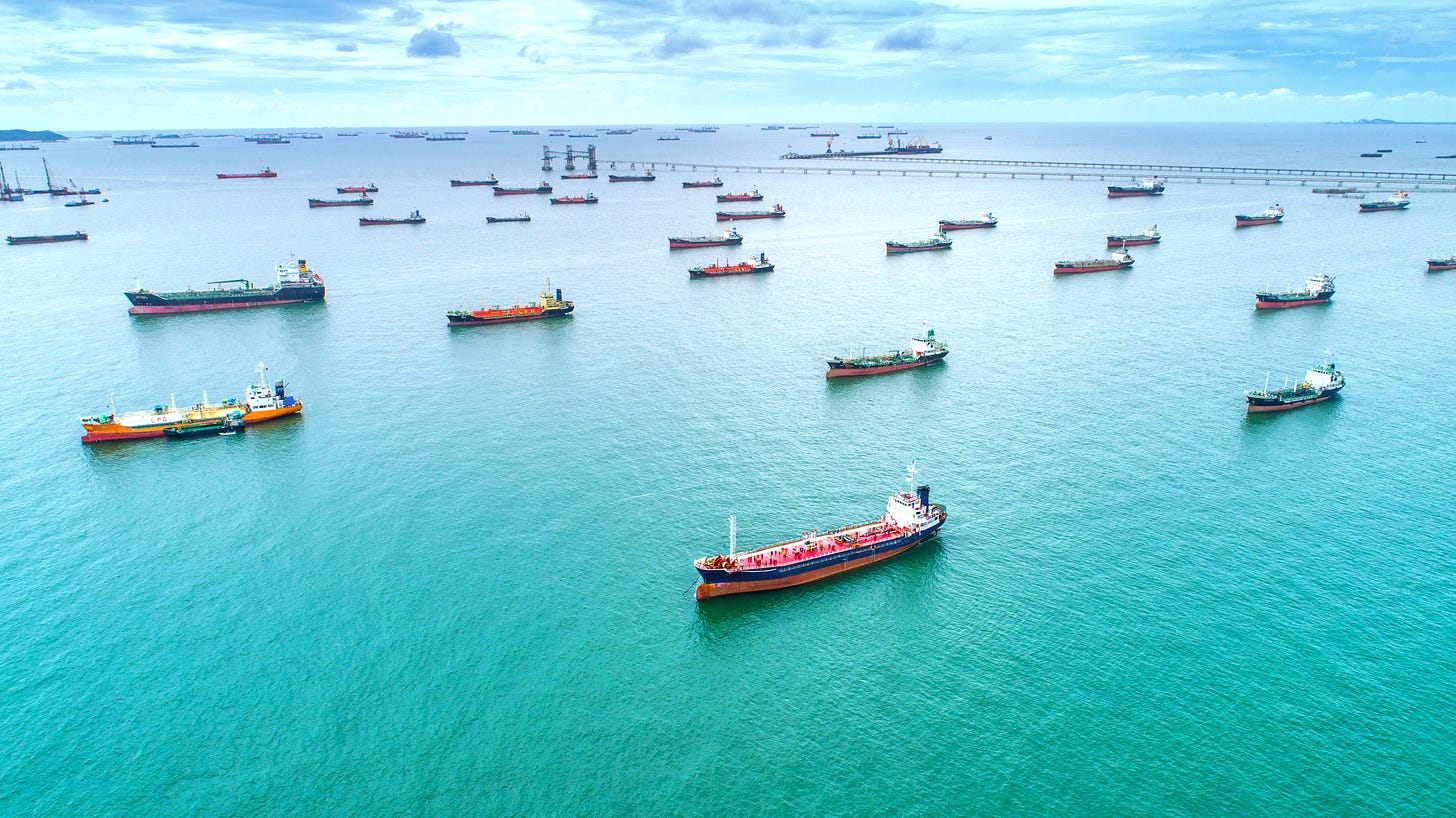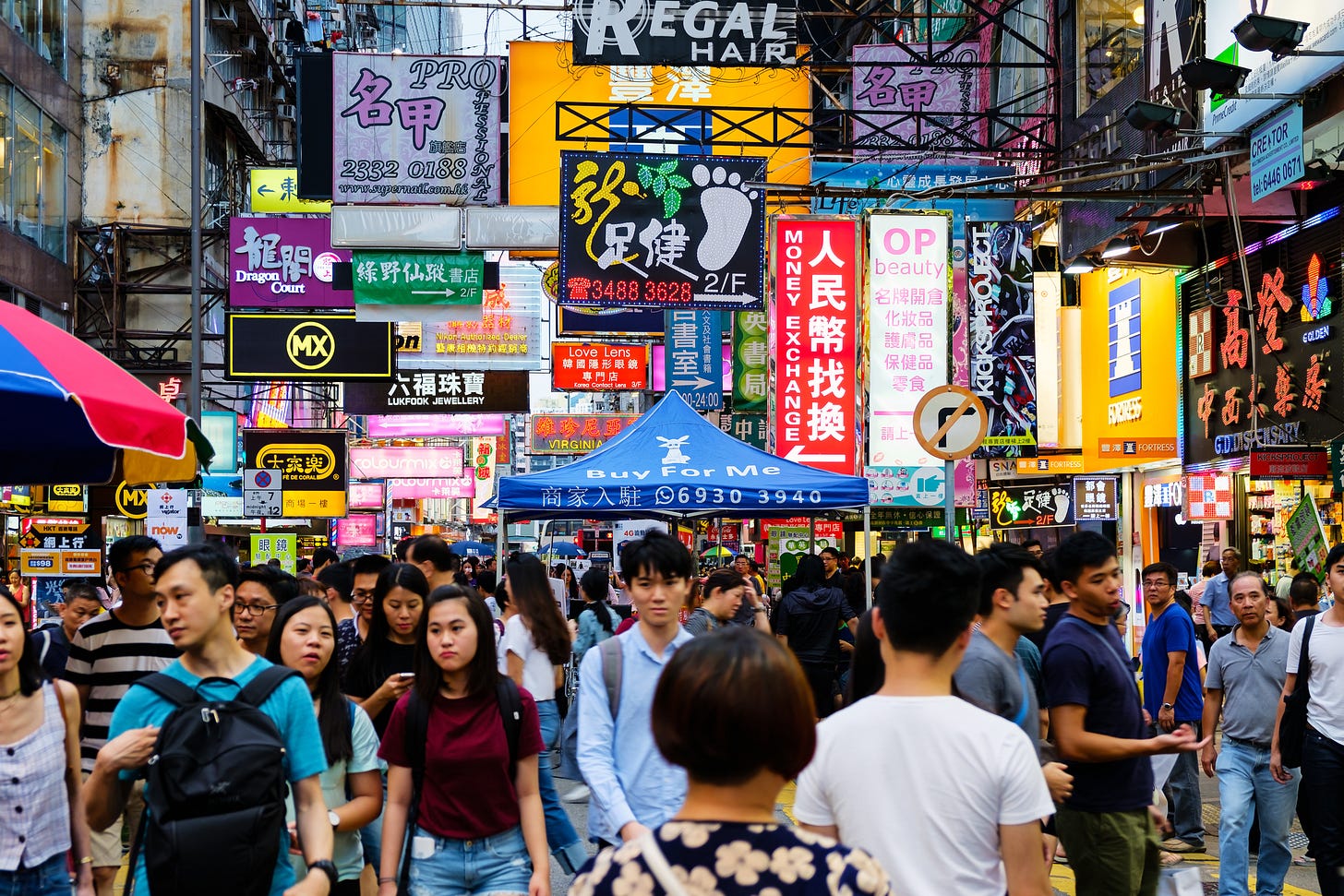Emerging Markets Daily - July 1
Didi Launches US IPO, Indonesia Facing Covid 'Catastrophe', Oil Prices Surge, Saudi Arabia Unveils Transport and Logistics Strategy, SoftBank Vision Fund 2 Cranks Up Deals, and more..
The Top 5 Emerging Markets Stories from Global Media - July 1
Chinese Ride-Hailing Giant Didi Launches US IPO, Valued at $68.5 Billion
BBC
“Chinese ride-hailing giant Didi Global has ended its first day on the New York Stock Exchange with a valuation of $68.49bn (£49.6bn). That is even as its shares closed just 1% higher than their $14 offering price after slipping back from earlier strong gains.”
“It was the biggest listing in the US by a Chinese company since Alibaba's debut in 2014. China's answer to Uber raised $4.4bn in the Initial Public Offering (IPO). It is the latest in a series of Chinese companies to cash in on the booming US stock market.”
“In the first six months of the year, some 29 Chinese companies raised a total of $7.6bn in IPOs, according to financial markets data provider Refinitiv. This is despite years of tensions between Washington and Beijing, and concerns raised by US regulators over some Chinese firms' financial reports.”
“Didi had originally hoped for a valuation of as much as $100bn, according to a Reuters report in March. Those expectations were said to have been scaled back after potential investors voiced concerns about the speed and profitability of the firm's expansion plans.”
“Didi, like the majority of ride-hailing platforms, had been loss-making until it reported a $30m profit for the first three months of this year. In 2020, it reported a $1.6bn annual loss as the business was hit by the pandemic…”
“Uber also owns 12% of the firm as a result of Didi taking over Uber China in 2016.” BBC reports.
Indonesia on Verge of Covid “Catastrophe”
Financial Times
“Indonesia is set to tighten distancing measures to counter record numbers of Covid-19 cases as experts warn that south-east Asia’s largest country is on the brink of a ‘catastrophe’.”
“Indonesian president Joko Widodo on Thursday said the new curbs, which will run from July 3-July 20 with the aim of reducing daily cases to below 10,000, will be implemented in the islands of Java, home to the capital Jakarta, and Bali, a tourism hotspot.”
“Restrictions include working from home for non-essential sectors, teaching online, closing shopping centres and barring dining in restaurants. ‘The Covid-19 pandemic in the last few days has developed very quickly because of a new variant that is also a serious problem in many countries,’ Widodo said. ‘This situation requires us to take more decisive steps.’”
“Widodo called on the national armed forces, the ‘state’ and ‘civil’ apparatus as well as doctors and health workers to help implement the restrictions. The announcement comes a day after Indonesia reported a record daily increase in Covid-19 cases of 21,807 new infections.”
“With more than 2m cases, it has south-east Asia’s worst outbreak. The world’s fourth most populous country reported a string of record daily infections in June, putting its healthcare system under severe strain and leading analysts to fear Indonesia might be on the brink of disaster.” Stefania Palma reports.
Oil Prices Surge on Rising Demand in Advanced Economies
Wall Street Journal
“Oil prices rose sharply ahead of a critical OPEC meeting in which the cartel is expected to weigh up how to meet surging demand from the industrialized world.”
“U.S. crude rose more than 2% early Thursday, topping $75 a barrel for the first time since 2018. Brent crude, the international benchmark, was up almost 2%, approaching $76 a barrel.”
“OPEC’s meeting comes at a time when the historical dynamics of the oil markets have been thrown upside down by the pandemic. Demand growth from the developed world, which for years has stagnated, is on a tear as it emerges furiously from Covid-19 lockdowns. The developing world—the source of almost all new oil demand in years past—is still sputtering. That all makes gauging short-term crude demand as difficult as it has been since the world climbed back from the global economic crisis more than a decade ago.”
“As little as a week ago, the Organization of the Petroleum Exporting Countries and allied producers led by Russia were leaning toward boosting production by a half a million barrels a day when the group, dubbed OPEC+, meets Thursday.” Benoit Faucon, Collin Eaton and Summer Said report.
Saudi Arabia Launches National Transport and Logistics Strategy
Arab News
“Saudi Arabia’s Crown Prince Mohammed bin Salman on Wednesday launched his country’s National Transport and Logistics Strategy.”
“The comprehensive program aims to position the Kingdom as a global logistics hub connecting three continents, and improve all transport services in support of Saudi Vision 2030.”
“…It has four main goals: to transform Saudi Arabia into a logistics hub; boost the quality of life across the country; enhance fiscal sustainability; and improve the performance of public entities. Crown Prince Mohammed said that the strategy also aims to move Saudi Arabia into fifth place globally in terms of number of transit passengers, increase the number of international destinations served by the country to more than 250, and launch a new national air carrier. The successful implementation of these projects will help other sectors, such as Hajj, Umrah and tourism, to achieve their own goals for improvement and growth.” Arab News reports
SoftBank Vision Fund 2 Cranks up Investment to One Company per Day
Nikkei Asia
“SoftBank Group's second Vision Fund is going on an investment binge, adding on average one new startup target per day.”
“Vision Fund 2's investment plans cover a total of 129 companies as of June 18, the Japanese tech group's data shows, with 34 new targets added over the prior monthlong period.”
“Investments in 85 targets have been finalized, with another 44 companies approved by the investment committee. SoftBank's second Vision Fund looks set to surpass the 92 companies in the first fund's portfolio.”
“Vision Fund 2 doubled its investment allocation to $40 billion between the end of March and June 18, according to documents released during SoftBank's shareholders meeting June 23.” Taizo Wada reports
What We’re Also Reading….
Indonesia Close to IPO Overhaul to Lure Mega Tech Listings
Bloomberg
“Indonesia is close to finalizing a sweeping revamp of listing rules, paving the way for Southeast Asian startup giants from Bukalapak.com to ride-hailing leader GoTo to go public from August.”
“Authorities are finalizing details of new regulations that will allow firms to go public with multiple classes of shares carrying different voting rights, said Pandu Sjahrir, a commissioner at the Indonesia Stock Exchange (IDX). They will also relax curbs on loss-making firms, among other changes. Online marketplace Bukalapak.com will become the first unicorn to take advantage of the new regime and list around August, he said. GoTo, the country’s biggest tech startup valued at $18 billion, should follow soon after, he said in an interview.”
“From Hong Kong to London, stock exchanges around the world are trying to capture a slice of a global IPO boom. Indonesia joins its fellow bourses in relaxing regulations to entice often loss-making but highly sought-after fast-growth startups. Bukalapak is going public as Southeast Asia’s startup scene matures and investors seek exits: the region’s most valuable private firm, Grab Holdings Inc., aims to go public via a blank-check firm in the second half of the year.” Fathiya Dahrul and Yoolim Lee report
Shenzhen Drafts First-of-a-kind AI Regulations
South China Morning Post
“China’s tech hub Shenzhen plans to turbocharge the development of artificial intelligence (AI) in the city, with supporting policies that include fast-tracking the commercialisation of AI products and providing better access to public data.”
“A draft document outlining the plan – China’s first instance of local regulations drawn up for the AI sector – was submitted to the Shenzhen’s People’s Congress for review on Monday, according to a statement on its website.”
“The document singled out healthcare AI, encouraging medical institutions to come up with simpler review systems for faster approvals of pilot AI products.”
“At stake is China’s US$23.2 billion AI industry, which is expected to see rapid growth to surpass 400 billion yuan by 2025.” Iris Deng reports





